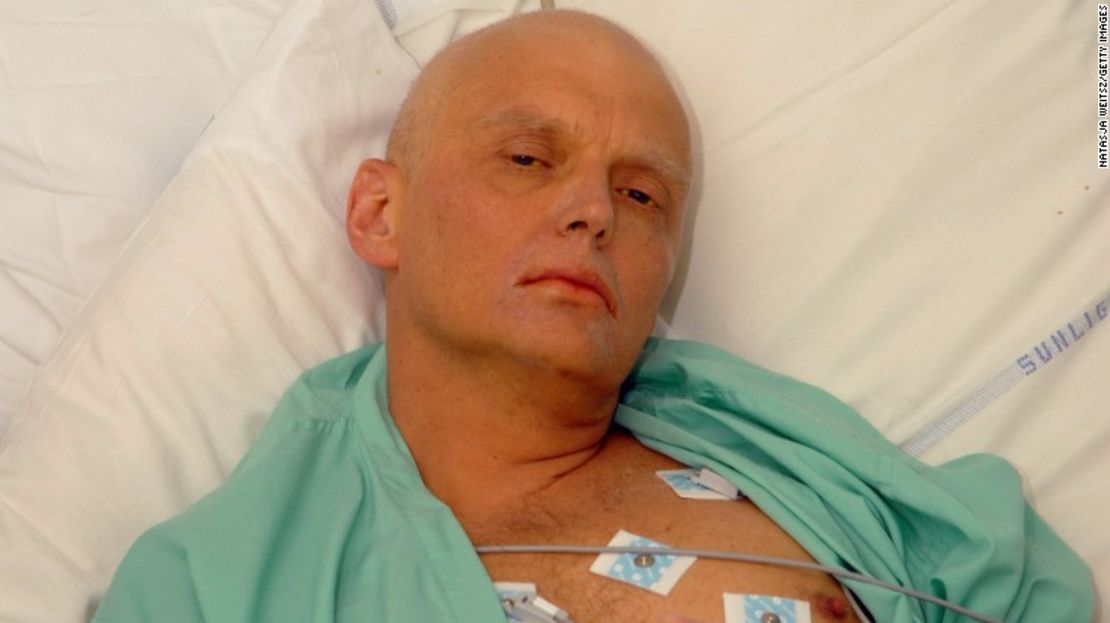The widow of Alexander Litvinenko has urged the UK government to do more to protect Russians who have sought shelter in Britain following the attempted assassination of former Russian spy Sergei Skripal and his daughter Yulia.
The UK government has not yet said who is behind the nerve agent attack on Skripal and his daughter in the southern English city of Salisbury, but speculation is rife that Moscow could be responsible.
A British inquiry found that two Russian agents poisoned Alexander Litvinenko at a London hotel bar in 2006 by spiking his tea with highly radioactive polonium-210. From his deathbed, he insisted that Russian President Vladimir Putin and the Kremlin were responsible for what happened.

His widow, Marina Litvinenko, told CNN in an exclusive interview Thursday that it was too early to jump to conclusions in the Skripal case. But she acknowledged she had immediately seen “similarity of a way to assassinate” between this attack and the case of her husband, whom she refers to as Sasha.
Speaking in Berlin, Litvinenko said some lessons had been learned – but that more should have been done by the UK government. As well as expelling Russian intelligence operatives from British soil, the authorities should “prevent people who have been involved in crime in Russia who have all this dirty money to bring and use this dirty money in the UK,” she said.
“But it looks like it did not happen. And now when we are talking about protection, about safety … it looks like British government can’t provide it. And now it’s a big issue,” she said.
“If you accept people for political asylum … like Sergei, like Sasha, and, you know, you have many people in the UK for the same reason. Now how are they made to feel after what happened to this man? Only insecure and very unsafe.”
After her lawyer called to alert her to the news about Skripal, Litvinenko said she was shocked to see images of people wearing protective suits to examine the scene in Salisbury. But she also realized there was now a different level of awareness in Britain.
“It is obvious the public is now in a different stage,” she said. “When it happened to us 11 years ago, we (needed) to prove it. Nobody could believe that (the) Russian state was behind all this crime and even for two and a half weeks, when Sasha was in hospital, that Sasha was poisoned at all,” she said.
Organized crime
Litvinenko said she had endured the lengthy and painful process of a public inquiry into her husband’s murder in the hope that it would prevent anyone else suffering the same fate on British soil.
The inquiry, led by judge Robert Owen, concluded in 2016 that Putin “probably approved” the ex-spy’s killing. The Kremlin has always denied the accusation, as did the two agents accused of the poisoning, whom the Russian government refuses to extradite to Britain. The Russian Foreign Ministry dismissed the inquiry as politically motivated.
Litvinenko had worked for the FSB, Russia’s successor agency to the KGB, the former Soviet secret police and intelligence agency. He specialized in tackling organized crime and his last job at the agency was heading up its anti-corruption department, after the collapse of the Soviet Union, a position that made him many enemies.
Litvinenko said she was proud of her husband’s work tackling organized crime, which she added was quite different to the espionage carried out by Skripal.
She urged the UK government to pursue targeted sanctions against individuals in Russia, such as those imposed by the United States and European Union, if it wanted to impact those involved in a “system” of corruption and bring about change.
Saying there were “echoes” of Litvinenko’s case in Skripal’s, UK Foreign Secretary Boris Johnson warned Wednesday that Britain would “respond robustly” if the Salisbury attack was found to be the work of a foreign power.
Russia’s embassy in London responded in a statement, saying it “looks like the script of yet another anti-Russia campaign has already been written.”
But Litvinenko also warned that denials by the Russian government could not be taken at face value, based on her experience after her husband’s murder. “Absolutely, they not only deny, they try to say they are happy to cooperate,” she said.
CNN’s Nic Robertson reported from Berlin and Laura Smith-Spark wrote from London. CNN’s Bharati Naik and Claudia Otto contributed to this report.







